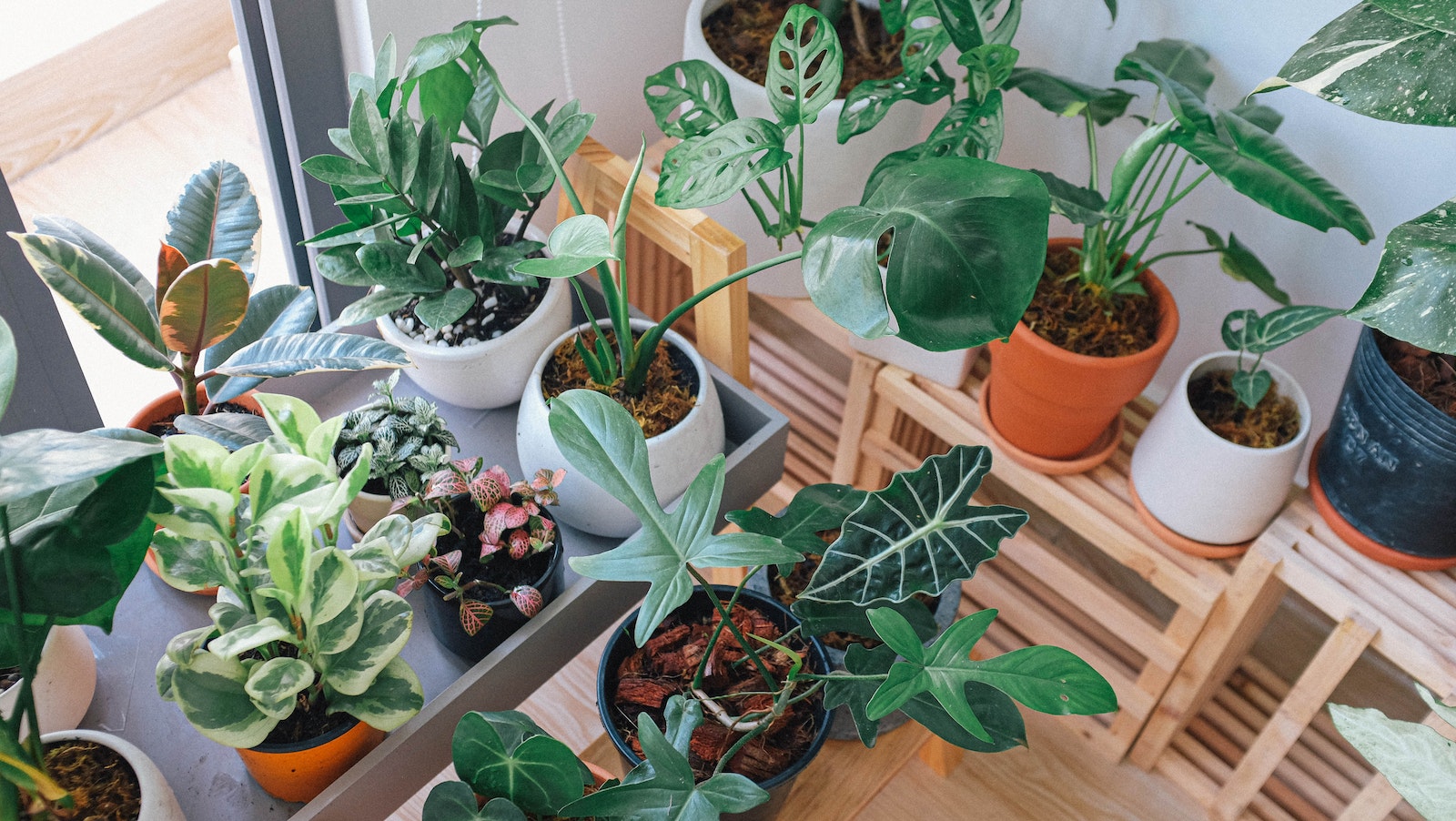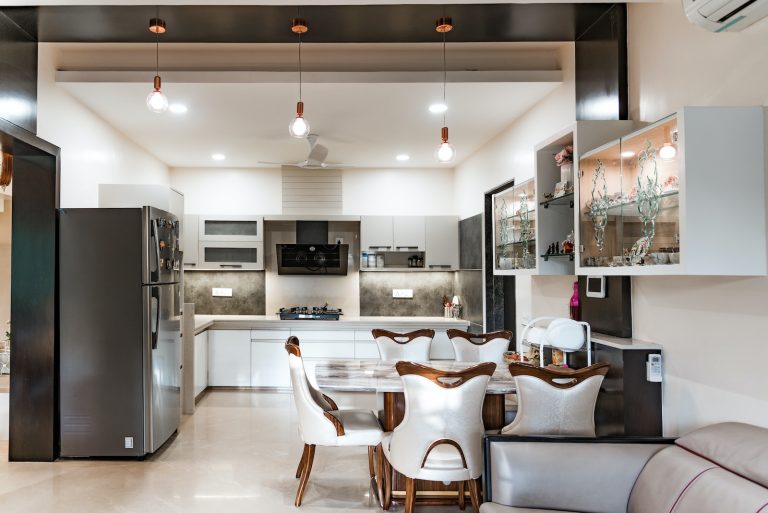The Busy Person's Guide to Keeping Houseplants Healthy

Are you a busy bee struggling to keep your beloved houseplants healthy? Do you find yourself constantly forgetting to water, fertilize or clean up after them? Fear not! We have the ultimate guide for all the hustlers out there who want to keep their greenery thriving without sacrificing precious time.
From low-maintenance plant options to handy tips and tricks, we’ve got you covered. Get ready to transform your home into an urban jungle with this Busy Person’s Guide to Keeping Houseplants Healthy!
Introduction to Houseplants
As someone who is always on the go, you may think that you do not have time to care for a houseplant. However, there are many low-maintenance plants that only require a little bit of your time and attention. With a few simple tips, you can keep your houseplants healthy and thriving.
One of the most important things to remember when caring for houseplants is to give them enough light. Most plants need at least six hours of sunlight per day, so be sure to place them in a bright spot in your home. If you cannot provide enough natural light, you may need to supplement with artificial lighting.
Water is another important factor in keeping your plants healthy. Overwatering is just as harmful as not watering enough, so be sure to check the soil before watering and only give your plant as much water as it needs. Allow the soil to dry out completely between waterings.
Fertilizer can also help your plants stay healthy and thrive. Use a balanced fertilizer that is specifically designed for houseplants and follow the directions on the package for best results. Be sure not to over-fertilize, as this can harm your plants.
With a little bit of care and attention, you can easily keep your houseplants healthy despite a busy schedule.
Benefits of Keeping Houseplants
One of the best things about keeping houseplants is that they can improve your indoor air quality. They do this by absorbing carbon dioxide and releasing oxygen back into the air. They can also help to filter out harmful chemicals and pollutants from the air. Studies have shown that keeping houseplants can help to reduce stress levels and improve focus and concentration. They can also boost your mood and overall sense of wellbeing.
Another great benefit of keeping houseplants is that they can help to purify the air in your home. They do this by absorbing harmful toxins and chemicals through their leaves and roots. Houseplants are particularly effective at removing formaldehyde, benzene, and trichloroethylene from the air. These are all common pollutants that can be found in many homes.
So, if you’re looking for a way to improve your indoor air quality, reduce stress, and boost your mood, consider adding some houseplants to your home.
Tips for Choosing the Right Plants
When it comes to houseplants, there are a few things to keep in mind in order to choose the right plants for your home. Here are a few tips:
- Consider your environment: Every home is different, so it’s important to take into account the amount of light, humidity, and temperature fluctuations in your home before choosing a plant.
- Do your research: Not all plants are created equal – some require more care than others. Be sure to do your research on a plant before bringing it home.
- Start small: If you’re new to keeping houseplants, it’s best to start with something small and low-maintenance. Once you get the hang of things, you can move on to more challenging plants.
- Have realistic expectations: Don’t expect your plant to look perfect all the time – sometimes they’ll have bad days (or weeks!) just like we do. As long as you’re giving them the care they need, they’ll bounce back eventually.
Proper Care and Maintenance
Assuming you’re not a plant expert, here are some general tips for proper care and maintenance of houseplants. These will help keep your plants healthy and looking their best.
First, choose the right plant for your space and light conditions. Not all plants thrive in low-light conditions, so be sure to do your research before making a purchase. Once you have your plant, water it thoroughly but don’t overdo it – most houseplants like to have their roots kept moist but not soggy.
Allow the top few inches of soil to dry out between watering. Fertilize your plant every few weeks with a balanced liquid fertilizer diluted to half strength. Be sure to follow the package directions carefully.
Finally, keep an eye out for pests such as aphids, whiteflies, and mealybugs – these can infest your plants and do serious damage. If you see any pests, treat them immediately with an appropriate insecticide or horticultural oil.
Watering and Fertilizing Tips
If you’re like most busy people, you don’t have a lot of time to spend on your houseplants. But with a few simple tips, you can keep them healthy and flourishing.
Watering: One of the most important things you can do for your plants is to water them regularly. Depending on the type of plant, it may need to be watered every day or just once a week. Check the soil before watering to see if it’s dry; if it is, give the plant a good drink. Over-watering can be just as harmful as not watering at all, so make sure you’re not giving your plants too much or too little water.
Fertilizing: Fertilizing your plants is also important in keeping them healthy. You can use liquid fertilizer or slow-release pellets; just be sure to follow the directions on the package for how often to fertilize. Some plants also benefit from being misted with water that contains a little bit of fertilizer; this is especially good for ferns and other moisture-loving plants.
Common Problems with Houseplants
One of the most common problems with houseplants is that they become pot bound. This means that the roots have completely filled the pot and there is no room for them to expand. The plant will become stunted and will not grow any larger. The best way to avoid this problem is to repot your plant every year or two into a pot that is slightly larger.
Another common problem is that the leaves of your houseplant may start to turn yellow or brown. This can be caused by a number of things, including over-watering, under-watering, or using water that contains too much chlorine.
If you think your plant is being over-watered, try letting the soil dry out a bit before watering again. If you think your plant is being under-watered, make sure you are watering it regularly and not letting the soil dry out completely.
If you notice that your plant’s leaves are turning brown or yellow, it could also be due to a lack of nutrients. Plants need a balanced diet of nitrogen, phosphorus, and potassium to stay healthy. You can usually correct this problem by fertilizing your plant with a general-purpose fertilizer that contains these three nutrients.
Troubleshooting Solutions
If your houseplants are looking a little under the weather, don’t despair! With a little troubleshooting, you can get them back on the road to recovery in no time.
First, take a look at your plant’s leaves. Are they wilted, discolored, or covered in spots? If so, there could be a number of causes, ranging from too much or too little water to pests or disease.
If your plant is wilting, it may be thirsty. Check the soil moisture level and water accordingly. If the leaves are yellow or brown, it could be a sign of overwatering – try letting the soil dry out for a few days before watering again.
Leaves that are covered in spots or have strange markings could be a sign of pests or disease. Inspect the plant carefully and look for any small insects or eggs. You can also check for signs of fungal diseases like powdery mildew or root rot.
Once you’ve identified the problem, you can take steps to correct it. If you’re unsure of what to do, consult a professional gardener or horticulturist for help.
Pros & Cons of Houseplant Ownership
Assuming you don’t have a green thumb, keeping houseplants alive can be challenging. But there are some good reasons to give plant parenthood a try: greenery has been shown to boost moods, increase productivity, and purify the air. Here’s a beginner’s guide to understanding the pros and cons of owning houseplants.
The Pros:
Houseplants Can Improve Your Mood
Studies have shown that having plants in your home can improve your mood and mental well-being. One reason for this is that caring for plants can help reduce stress levels. watering them, checking on their progress, and giving them the occasional trim can all be therapeutic activities.
They Can Help You Focus and Be More Productive
In addition to improving your mood, studies have also shown that plants can help you focus and be more productive. One reason for this is that they help increase oxygen levels in the room, which has been linked to better cognitive function.
They Can Purify the Air
We spend a lot of time indoors these days – as much as 90% according to some estimates – so it’s important to make sure the air we’re breathing is clean. Luckily, many common houseplants act as natural air purifiers, helping to remove harmful toxins from the air.
The Cons:
They Require Time and Maintenance
The biggest downside to owning houseplants is that they require time and maintenance. You need to water them regularly and make sure they’re getting the right amount of light and nutrients. If you’re not willing or able to commit to this, then houseplants may not be for you.
They Can Be Expensive
Another potential downside is that houseplants can get expensive, especially if you want a variety of different types. Buying multiple plants can quickly add up, so it’s important to factor in the cost when making your decision.
They Can Spread Diseases
Finally, one potential risk of owning houseplants is that they can spread diseases. This is especially true if you keep several plants together in close quarters, as pests and diseases can easily spread from plant to plant. To minimize this risk, it’s important to inspect your plants regularly for signs of disease or infestation and treat them promptly if necessary.
James is a passionate writer and gardener with years of experience in home gardening. He is the author of several articles and blog posts on HomeGardenBlog.com, a platform where he shares his expertise and love for plants and gardening with the world.






